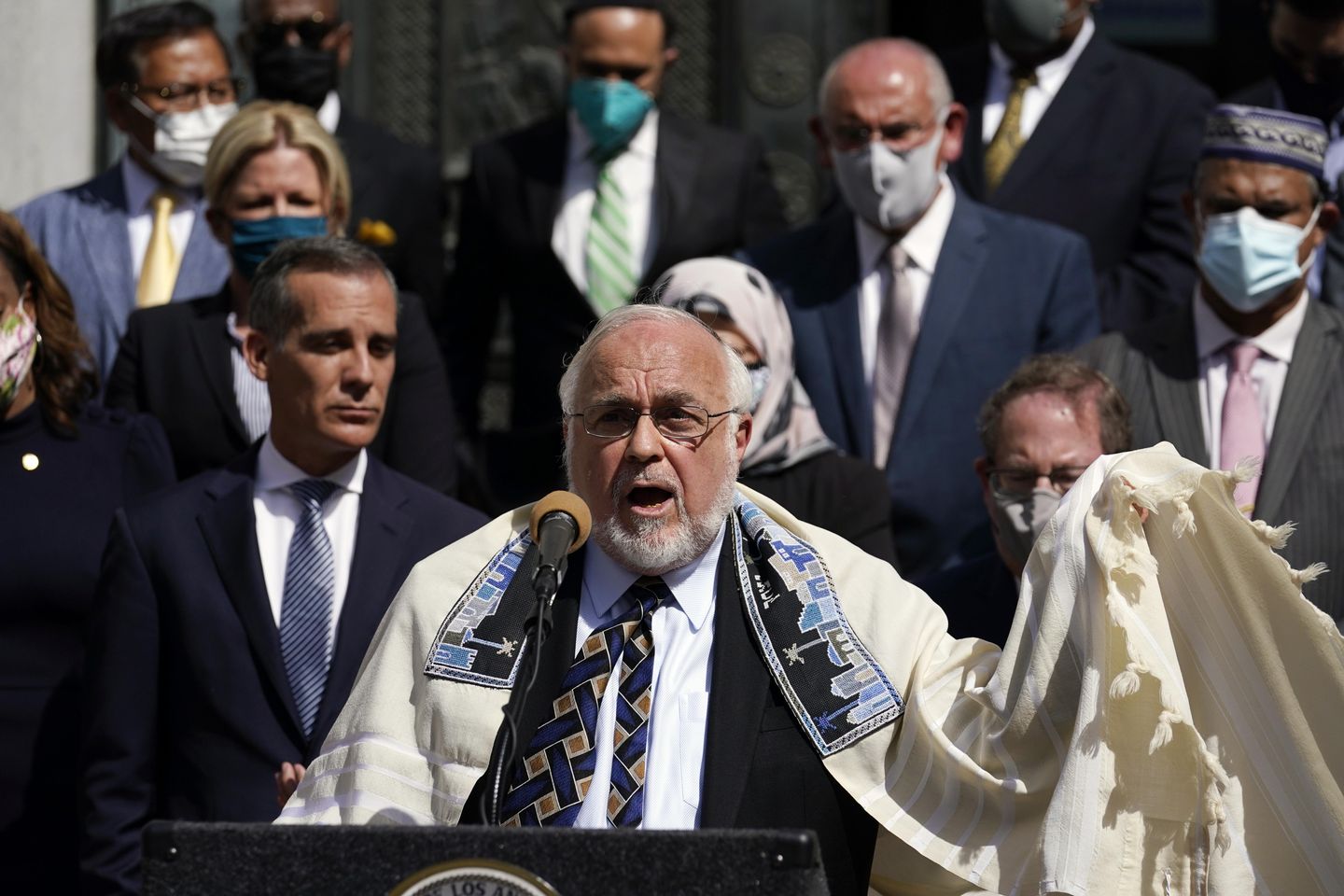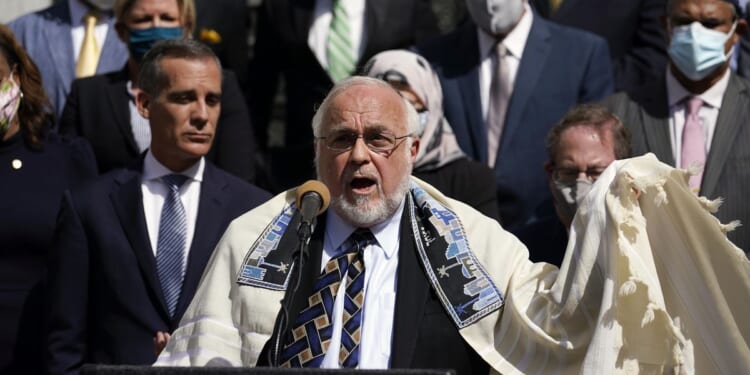
A U.S. delegation cut short an official visit to Saudi Arabia last week after hosts demanded the Orthodox Jewish rabbi chairing the U.S. Commission on International Religious Freedom remove his religious head covering in public during the trip.
Rabbi Abraham Cooper of Los Angeles is the current USCIRF chair and wears a yarmulke, or kippah, as part of his faith.
According to a statement from the independent panel, Saudi “authorities required the USCIRF delegation to leave the Diriyah UNESCO World Heritage Site in Riyadh” when Rabbi Cooper “politely” refused the demand on Tuesday.
USCIRF said the rabbi “sought no confrontation or provocation,” but couldn’t comply. The entire delegation was escorted out of the heritage site.
“No one should be denied access to a heritage site, especially one intended to highlight unity and progress, simply for existing as a Jew,” Rabbi Cooper said in a statement. “Saudi Arabia is in the midst of encouraging change under its 2030 Vision. However, especially in a time of raging antisemitism, being asked to remove my kippah made it impossible for us from USCIRF to continue our visit.”
Rabbi Cooper was unanimously elected USCIRF chair last year. He was named to the panel by Senate Minority Leader Mitch McConnell, Kentucky Republican. He is the associate dean and director of Global Social Action for the Simon Wiesenthal Center in Los Angeles.
The Rev. Frederick A. Davie, the panel’s vice-chair, called the incident “stunning and painful.”
The Saudi demand, Mr. Davie said, “Directly contradicted not only the government’s official narrative of change but also genuine signs of greater religious freedom in the Kingdom that we observed firsthand.”
Saudi Arabia has had a checkered record on the question of religious freedom. Home to some of Islam’s holiest sites, including Mecca, to which millions of pilgrims trek annually, the kingdom is closed to religious proselytizing and strictly limits activities of non-Muslim groups to installations where they live.
Rabbi Cooper said commission members look “forward to continuing conversations with the Saudi government about how to address the systematic issues that led to this troubling incident.”












